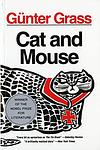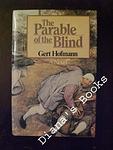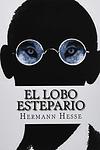The Greatest Czech, German "Allegorical, Fiction" Books Since 1900
Click to learn how this list is calculated.
This list represents a comprehensive and trusted collection of the greatest books. Developed through a specialized algorithm, it brings together 305 'best of' book lists to form a definitive guide to the world's most acclaimed books. For those interested in how these books are chosen, additional details can be found on the rankings page.
Genres
Allegorical books are a genre of literature that use symbolic characters, events, and settings to convey a deeper meaning or message. These stories often have a moral or philosophical lesson that is meant to be interpreted by the reader. Allegories can be found in many different types of literature, including novels, short stories, and poetry. They are a powerful tool for exploring complex ideas and emotions, and can be used to comment on social, political, or religious issues. Overall, allegorical books are a thought-provoking and engaging genre that challenges readers to think critically and reflect on the world around them.
Countries
Date Range
Reading Statistics
Click the button below to see how many of these books you've read!
Download
If you're interested in downloading this list as a CSV file for use in a spreadsheet application, you can easily do so by clicking the button below. Please note that to ensure a manageable file size and faster download, the CSV will include details for only the first 500 books.
Download-
1. The Trial by Franz Kafka
The book revolves around a bank clerk who wakes one morning to find himself under arrest for an unspecified crime. Despite not being detained, he is subjected to the psychological torment of a bizarre and nightmarish judicial process. The story is a critique of bureaucracy, exploring themes of guilt, alienation and the inefficiency of the justice system.
The 39th Greatest Book of All Time -
2. The Magic Mountain by Thomas Mann
In this novel, the protagonist, a young, ordinary man, visits his cousin at a tuberculosis sanatorium in the Swiss Alps. Intending to stay for only a few weeks, he ends up remaining there for seven years, becoming a patient himself. The book explores his experiences and relationships with other patients and staff, delving into philosophical discussions on life, time, and the nature of disease. It also provides a vivid portrayal of the European society and intellectual life on the eve of World War I.
The 43rd Greatest Book of All Time -
3. The Tin Drum by Günter Grass
The novel tells the story of Oskar Matzerath, a boy who decides on his third birthday that he will stop growing and remain a three-year-old forever. Oskar is gifted with a tin drum by his mother, which he uses to express his emotions and thoughts. Living in Danzig during the rise of Nazi Germany, Oskar's refusal to grow is a form of protest against the adult world. The book is a blend of magical realism and historical fiction, providing a unique perspective on the horrors of World War II and the post-war era in Germany.
The 93rd Greatest Book of All Time -
4. The Metamorphosis by Franz Kafka
The book tells the story of a man who wakes up one morning to find himself transformed into a giant insect. His transformation causes him to lose his job and become ostracized from his family, who are horrified and repulsed by his new form. As he grapples with his new reality, he becomes increasingly isolated and starts to lose his sense of humanity. The book explores themes of alienation, guilt, and identity, and is a profound examination of the human condition.
The 123rd Greatest Book of All Time -
5. The Castle by Franz Kafka
This novel presents the story of a man who arrives in a village and struggles to gain access to the mysterious authorities who govern it from a castle. The protagonist, a surveyor, faces the constant frustration of his efforts to make contact with the elusive authorities and integrate into village society. The book explores themes of alienation, bureaucracy, the seemingly endless frustrations of man's attempts to stand against the system, and the futile pursuit of an unobtainable goal.
The 133rd Greatest Book of All Time -
6. Steppenwolf by Hermann Hesse
The novel presents a poignant exploration of a man's struggle with his dual nature. The protagonist, a middle-aged man, finds himself torn between his humanistic, intellectual tendencies and his more primitive, wolf-like instincts. As he navigates his way through the surreal and sometimes hallucinatory world, he encounters various characters who challenge his views and push him towards self-discovery and transformation. The narrative delves into themes of alienation, the subconscious mind, and the search for meaning in life.
The 147th Greatest Book of All Time -
7. Doctor Faustus by Thomas Mann
The novel is a reimagining of the Faust legend set in the context of the first half of the 20th century and the turmoil of Germany in that period. It tells the story of a composer who makes a pact with the devil, exchanging his soul for unlimited creative genius. The protagonist's life and work reflect the cultural and political journey of Germany leading up to World War II, providing a deep exploration of the individual's role in a society undergoing dramatic change. The novel is also a profound meditation on the nature of time, the art and the artist, and the destructiveness of human ambition.
The 153rd Greatest Book of All Time -
8. Franz Kafka: The Complete Stories by Franz Kafka
This collection of stories offers a comprehensive look at the work of a renowned author, known for his surreal and often unsettling depictions of modern life. The stories explore themes of existential anxiety, guilt, and absurdity, often through narratives in which ordinary people face extraordinary, inexplicable circumstances. The collection showcases the author's unique style and his profound influence on 20th-century literature.
The 170th Greatest Book of All Time -
9. The Glass Bead Game by Hermann Hesse
Set in the 23rd century, the novel revolves around a highly intellectual game, the Glass Bead Game, which incorporates all fields of human and cosmic knowledge. The story follows the life of Joseph Knecht, a scholar who becomes a Magister Ludi (Master of the Game). The book explores his life and thoughts, including his relationships with others and his questioning of the values of his society. The narrative is a profound exploration of human life, knowledge, and spirituality.
The 450th Greatest Book of All Time -
10. Death in Venice by Thomas Mann
"Death in Venice" is a novella that explores the life of Gustav von Aschenbach, a famous writer in his early fifties who embarks on a journey to Venice after experiencing a creative block. In Venice, he becomes obsessed with a beautiful Polish boy named Tadzio, whom he sees at the hotel where he is staying. Aschenbach's fascination with Tadzio becomes a metaphor for his own internal struggle with his repressed passions and his need for aesthetic beauty. The story culminates in Aschenbach's death as a cholera epidemic sweeps through Venice. His demise symbolizes the destructive power of his unfulfilled longing and his ultimate surrender to his repressed desires.
The 460th Greatest Book of All Time -
11. Amerika by Franz Kafka
This novel tells the story of a young immigrant, Karl Rossmann, who after an unfortunate incident is sent by his parents to America. The narrative follows his journey through a strange new world, where he encounters a variety of eccentric characters and experiences a series of bizarre and often surreal situations. Throughout his journey, the protagonist struggles with feelings of alienation and the harsh realities of the American Dream, while trying to navigate the complexities of life in a foreign land.
The 646th Greatest Book of All Time -
12. War with the Newts by Karel Čapek
The novel is a satirical science fiction tale that explores the discovery of a species of intelligent giant newts. When humans realise they can exploit these creatures for economic gain, they are enslaved and used for labor and military purposes. The newts ultimately rebel, leading to a global war. The book serves as a critique of various political, economic and ideological systems, including colonialism, capitalism and fascism.
The 1542nd Greatest Book of All Time -
13. Demian by Hermann Hesse
The novel follows the life of a young man, Emil Sinclair, from childhood to adulthood, as he navigates the duality of his nature and the societal expectations of his time. He is influenced by a charismatic and intellectual peer, Max Demian, who introduces him to the concept of the world not as a dichotomy of good and evil, but as a unified whole. This leads Sinclair on a journey of self-discovery and spiritual enlightenment, exploring themes of identity, morality, and the subconscious. The narrative is heavily influenced by the philosophies of Carl Jung and the Gnostic tradition.
The 1635th Greatest Book of All Time -
14. The Resistible Rise of Arturo Ui by Bertolt Brecht
"The Resistible Rise of Arturo Ui" is a satirical play that uses the rise of a fictional 1930s Chicago mobster, Arturo Ui, to parallel the rise of Adolf Hitler in Nazi Germany. The narrative is a critique of those who allowed Hitler to come to power, emphasizing that his rise was indeed resistible. The play explores themes of power, corruption, manipulation, and the dangers of complacency, showcasing the destructive potential of unchecked ambition and the failure of society to prevent the ascent of dangerous individuals.
The 1725th Greatest Book of All Time -
15. Cat and Mouse by Günter Grass
"Cat and Mouse" is a novel that centers around a group of boys living in Danzig during World War II. The story is narrated by one of the boys, who recounts the life of his friend, whom they call "the great Mahlke", a boy with a large Adam's apple. Mahlke's attempts to prove himself a hero despite his physical oddity, his obsession with a sunken ship, and his eventual expulsion from school and enlistment in the war form the heart of the narrative. The novel explores themes of identity, guilt, memory, and the devastating impact of war on the individual and society.
The 1761st Greatest Book of All Time -
16. The Fool In Christ: Emmanuel Quint by Gerhart Hauptmann
This novel delves into the life of Emmanuel Quint, a man who, amidst the turmoil of early 20th-century Germany, believes himself to be a modern-day messiah. His profound spiritual convictions and miraculous healings draw a fervent following, yet also attract scorn and skepticism from society and religious authorities. As he embarks on a tumultuous journey of faith, Quint's radical teachings and the controversies surrounding his actions challenge the established norms and beliefs of the time, leading to profound reflections on spirituality, morality, and the nature of divinity. The narrative explores the fine line between madness and sanctity, ultimately questioning the essence of truth and redemption in a world resistant to change.
The 2049th Greatest Book of All Time -
17. Dog Years by Günter Grass
"Dog Years" is a novel set in Germany during the rise and fall of the Nazi regime and the aftermath of World War II. The story is told from the perspectives of three friends: Walter Matern, a fervent Nazi supporter; Eduard Amsel, a Jewish artist who creates scarecrows; and Harry Liebenau, who narrates their stories. The novel explores the complexities of friendship and identity amidst the backdrop of war, guilt, and redemption. It also delves into the psychological impact of the Holocaust on German society and the struggle to come to terms with its horrific past.
The 2443rd Greatest Book of All Time -
18. The Caucasian Chalk Circle by Bertolt Brecht
The play is a parable set in the Soviet Union that explores themes of justice, class struggle, and morality through the story of Grusha, a servant girl who risks her life to protect an abandoned child of noble birth during a time of revolution. As the child grows, a dispute over his custody arises, leading to a trial presided over by a wily, unconventional judge named Azdak. The trial's resolution hinges on the titular chalk circle test, which ultimately reveals the true nature of parental love and the importance of putting the needs of the child first. The narrative is a commentary on the social and political issues of the time, advocating for a society that prioritizes the welfare of its most vulnerable members.
The 2778th Greatest Book of All Time -
19. Too Loud A Solitude by Bohumil Hrabal
The narrative centers around an elderly man who has spent his life compacting paper and books into bales in a decrepit cellar, using a hydraulic press. Despite the menial nature of his job, he has cultivated a deep love and profound knowledge for literature, philosophy, and art from the books that pass through his hands, many of which he rescues from destruction. The story is a poignant exploration of the power and resilience of the human spirit in the face of a dehumanizing, totalitarian regime, and a meditation on the enduring value of art and the written word. The protagonist's intellectual journey and his resistance to the oppressive forces around him serve as a metaphor for the survival of culture and individuality under oppressive conditions.
The 3061st Greatest Book of All Time -
20. The Parable of the Blind by Gert Hofmann
"The Parable of the Blind" is a darkly comedic novel that follows six blind men who are hired to pose as models for a famous painter's depiction of a biblical parable. As they journey to the painter's studio, they struggle with their dependence on each other and the outside world, grappling with the limitations and challenges of their blindness. The narrative explores themes of human vulnerability, the nature of perception, and the absurdity of existence.
The 3172nd Greatest Book of All Time -
21. The Good Person of Szechwan by Bertolt Brecht
"The Good Person of Szechwan" is a parable play that explores the difficulty of maintaining one's morals and goodness in a corrupt and exploitative world. The story revolves around a kind-hearted prostitute who struggles to be a good person under the harsh realities of life in Szechwan. When three gods visit the city in search of a good person, they find only her willing to help them. However, to survive, she must adopt a ruthless alter ego, leading to a complex exploration of morality, identity, and societal pressures.
The 3392nd Greatest Book of All Time -
22. El Lobo Estepario by Hermann Hesse
The novel explores the profound loneliness and existential despair of a middle-aged man who feels alienated from bourgeois society. Struggling with a dual nature of being both man and wolf, he embarks on a journey of self-discovery that leads him through surreal experiences and encounters with various characters who challenge his perspectives on life, love, and spirituality. Through these experiences, he confronts his own psyche and the complexities of human existence, ultimately seeking a path to spiritual enlightenment and personal transformation.
The 4681st Greatest Book of All Time -
23. Shadow Lands by Johannes Bobrowski
"Shadow Lands" is a poignant exploration of the historical and cultural landscape of Eastern Europe, delving into the complex relationships between the German minority and the Slavic peoples during the interwar period. The narrative weaves together themes of memory, loss, and the inexorable passage of time, as it reflects on the impact of war, displacement, and the search for identity amidst the shifting borders and political turmoil of the 20th century. Through lyrical prose and rich characterization, the novel paints a vivid portrait of a region haunted by its past, grappling with the ghosts of its diverse ethnic heritage and the scars left by conflict.
The 7168th Greatest Book of All Time -
24. Parables, Fragments, Aphorisms by Franz Kafka
This book is a collection of philosophical and existential musings, presented in the form of parables, fragments, and aphorisms. The work delves into the human condition, exploring themes of alienation, guilt, and the search for meaning in a seemingly incomprehensible world. The pieces are characterized by their brevity and depth, often leaving the reader with a sense of the uncanny and the profound. Through metaphor and succinct, thought-provoking statements, the author challenges readers to reflect on their own lives and the larger social and metaphysical systems that govern them.
The 7168th Greatest Book of All Time -
25. The Flounder by Günter Grass
The book is a rich tapestry of historical fiction and magical realism, weaving together the lives of a talking fish, a series of women cooks, and the men in their lives over several centuries. It explores themes of feminism, power, and the evolution of culinary arts, with the titular flounder serving as a guide and witness to the unfolding human drama. The narrative spans from the Stone Age to the modern era, reflecting on the changing roles and relationships between men and women, as well as the impact of these dynamics on culture and society. The novel is a blend of myth, satire, and allegory, presenting a unique perspective on the history of humanity through the lens of food and gender politics.
The 7878th Greatest Book of All Time
Reading Statistics
Click the button below to see how many of these books you've read!
Download
If you're interested in downloading this list as a CSV file for use in a spreadsheet application, you can easily do so by clicking the button below. Please note that to ensure a manageable file size and faster download, the CSV will include details for only the first 500 books.
Download






















